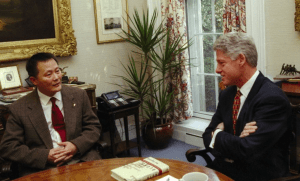Journal of Political Risk, Vol. 7, No. 9, September 2018

A PLAN Shenyang J-15 carrier-based fighter aircraft is preparing to land on Chinese aircraft carrier PLANS Liaoning (CV-16). Source: Wikimedia Commons.
William R. Hawkins
International Economics and National Security Consultant
The Ministry of Commerce of the People’s Republic of China (PRC) has announced it will file a complaint with the World Trade Organization (WTO) against the U.S. imposition of 25% tariffs on $16 billion worth of Chinese goods in August. This was the second tranche of tariffs imposed by President Donald Trump as the result of the U.S. Trade Representative’s (USTR) “findings of its exhaustive Section 301 investigation that found China’s acts, policies and practices related to technology transfer, intellectual property and innovation are unreasonable and discriminatory and burden U.S. commerce.” This second tranche brought the total of Chinese imports subject to higher duties to $50 billion, as announced in June. Beijing’s response was given by the state-owned People’s Daily: “By launching the complaint under the WTO dispute settlement mechanism, China is to safeguard free trade and multilateral mechanisms as well as its legitimate rights and interests.”



